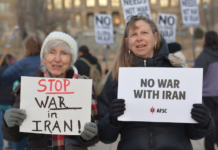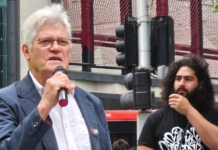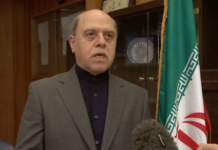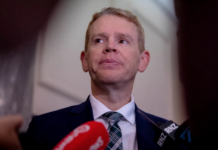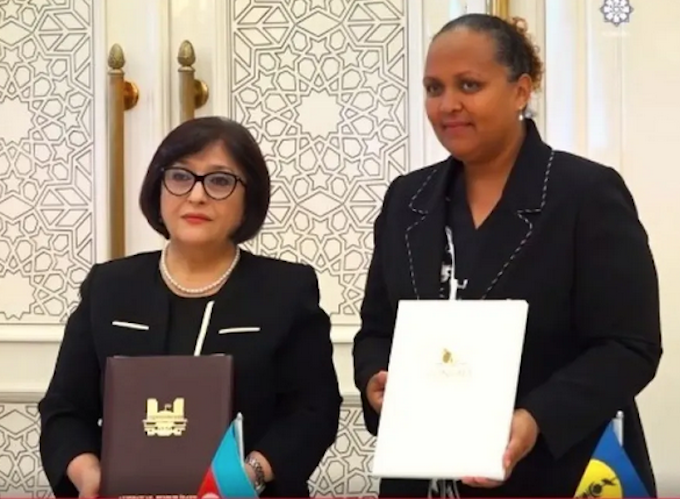
ANALYSIS: By Patrick Decloitre, RNZ Pacific correspondent French Pacific desk
The signing of a controversial memorandum of cooperation between New Caledonia’s Congress and the National Assembly of Azerbaijan has fuelled more tension — and demands from anti-independence parties that the deal be scrapped altogether.
The memorandum was signed on New Caledonia’s part by one pro-independence member of the Congress, Omayra Naisseline, on behalf of Congress Chair Roch Wamytan, and by Azerbaijan’s Milli Mejtis, the National Assembly Chair Sahibé Gafarova.
It was presented as paving the way for “interparliamentary cooperation and strengthening friendly ties between the peoples of Azerbaijan and New Caledonia”.
Speaking to Azeri media after the signing, Naisseline officially thanked the Bakou Initiative Group, the non-aligned movement, for their “support to the struggle of the Kanak people”.
She said the agreement would cover such topics as “youth, culture, economics, environment and politics”.
During the official signing of the document on April 18, Azerbaijan’s flag was placed on a desk near the Kanak flag which represents New Caledonia’s pro-independence movement.
Pro-France parties were up in arms upon learning of the signing leading to Congress Chairman and pro-independence leader Wamytan held a media conference on Tuesday.
Against French colonialism
Wamytan told local media that since he could not travel in person, he had asked Naisseline to sign the agreement on his behalf while she was travelling to Azerbaijan to attend a conference upon the invitation of the Bakou Initiative Group.
The “Bakou Initiative Group Against French Colonialism” was set up in July 2023, on the margins of a meeting of the non-aligned movement held at the time in the Azerbaijan capital.
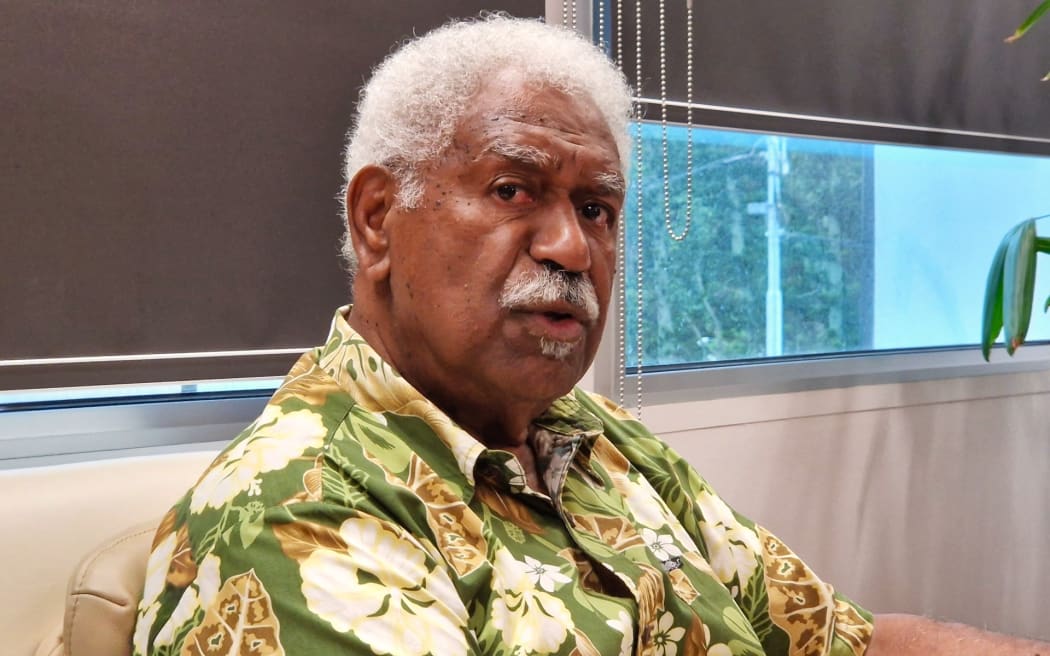
Wamytan said the travel expenses were taken care of by the host country, and that Naisseline travelled there in her capacity as FLNKS representative.
But referring to New Caledonia’s current tense negotiations on its political future status and a French move to modify voters eligibility at New Caledonia’s local polls, Wamytan also said on Tuesday that “we need to find external backing since (French) President Macron is no longer impartial”.
“Azerbaijan has shown it has the capacity to help the (pro-independence) FLNKS, and those countries that help us can take initiatives vis-à-vis France, and this is what we need so that our voice can be heard,” he said, referring to New Caledonia’s indigenous Kanak people’s right to self-determination.
Both Wamytan and Naisseline belong to the Union Calédonienne (UC), a major component of the pro-independence front FLNKS.
Other FLNKS components such as the PALIKA (Kanak Liberation Party) and the UPM (Union of Melanesian Parties) have yet to comment on the fresh controversy.
‘Inappropriate’ and ‘shameful’
This has since prompted an open row between pro-France parties within the Congress, who are denouncing the move as “inappropriate” and “shameful”.
Les Loyalistes Congress caucus head Françoise Suvé told local media: “For Omayra Naisseline to go there and claim that she is representing the people of New Caledonia and its Congress is just unacceptable.”
Pro-France Calédonie Ensemble MP, Philippe Dunoyer said this was shameful.
“There is a confusion, an instrumentalisation and behind all this, a political will.
“If the FLNKS wants to travel there, it has the right to do so, but not the Congress.”
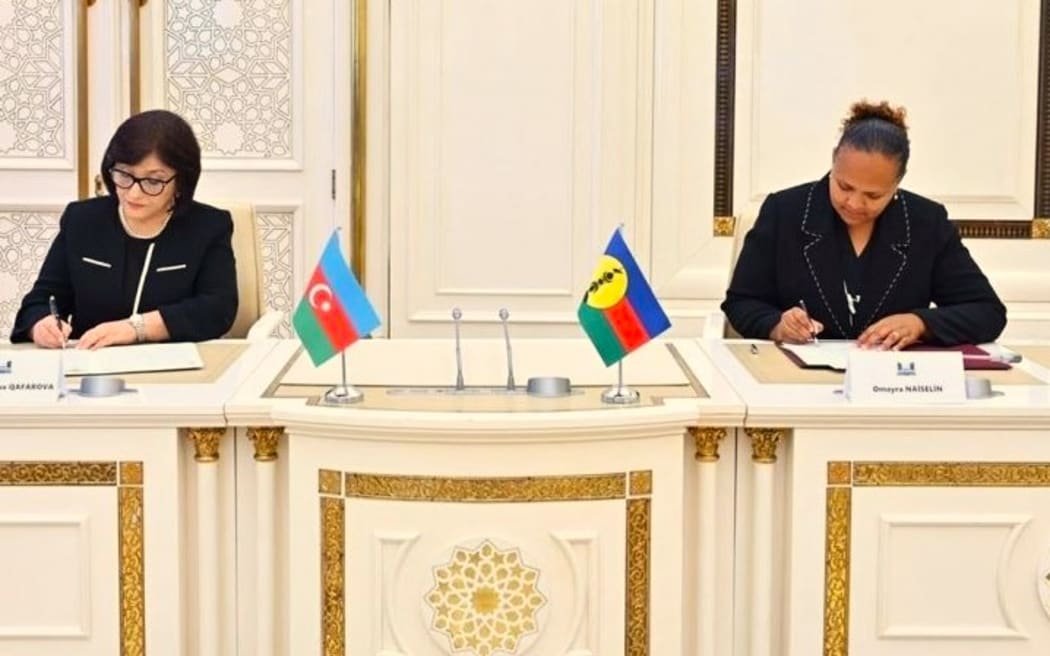
It is also understood that Nicolas Metzdorf, another pro-French MP who is New Caledonia’s representative at the French National Assembly, officially wrote last week to French Foreign Affairs Minister Sébastien Séjourné, asking France to provide a “strong diplomatic response” in reaction to “Azerbaijan’s flagrant interference”.
Relations between Paris and Bakou have been particularly tense over the past months.
In December 2023, a journalist from that country was denied entry and later deported on her arrival at Nouméa-La Tontouta international airport.
She claimed to be there to cover the French-hosted South Pacific defence ministers’ meeting in Nouméa, where hard-line members of the FLNKS were also holding protest marches against alleged French “re-militarisation” in New Caledonia.
In a joint release on Tuesday, pro-France parties Les Loyalistes and Rassemblement said New Caledonia’s Congress (including their MPs) were at no stage informed or consulted on this memorandum.
They said Naisseline had never been given the Congress’s endorsement to sign such a document on behalf of the Congress.
“In keeping with the Nouméa Accord which you signed (in 1998), local political institutions do not have powers in terms of international relations outside the Pacific region,”, the release added.
‘Shared powers’
Under the current Nouméa framework Accord (1998), which has been initiating a process of gradual transfer of powers from France to New Caledonia, the notion of “shared powers” applies to “international and regional relations”.
“International relations remain the responsibility of the [French] state, which will) take New Caledonia’s specific interests into account in international relations conducted by France and will associate [New Caledonia] to the discussions,” it says.
“New Caledonia may have representations in Pacific countries (and may) enter into agreements with these countries within its areas of responsibility.”
The pro-France parties also claim in the same document that the document signed with Azerbaijan “solely serves the aims of the pro-independence movement which is now becoming an instrument of Bakou regime’s will to destabilise France”.
“New Caledonia’s Congress cannot be seen as a partisan instrument serving foreign powers confronting France.”
They are calling for a Congress extraordinary sitting so that the accord with Azerbaijan can be declared “null and void”.
They also denounced the signing with “a country that is guilty of horrible crimes against its own population”.
Meanwhile, they have officially lodged a legal complaint for possible “misuse of public funds” associated with the trip to Azerbaijan.
The French High Commissioner in New Caledonia, Louis Le Franc, has indicated he would also challenge the legality of such a document.
Wamytan told media on Tuesday he would not nullify the pact with Azerbaijan “unless a court ruling compels [him] to do so”.
This article is republished under a community partnership agreement with RNZ.



